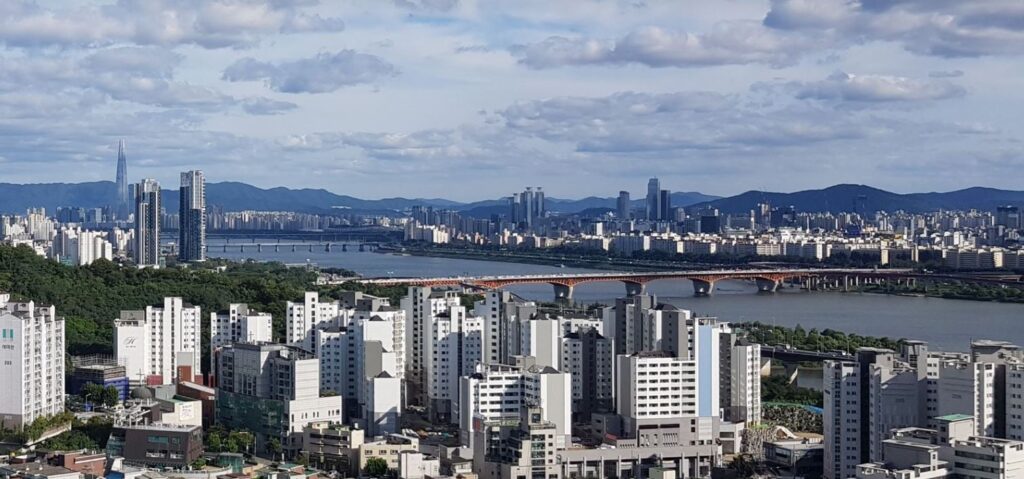South Korea, a nation celebrated for its rapid economic growth, technological advancements, and vibrant pop culture, faces a paradox. Despite being one of the world’s top economies, South Koreans report having some of the lowest happiness satisfaction levels among OECD countries. This troubling trend stands in stark contrast to the image of South Korea as a prosperous and successful nation.
The OECD Happiness Index: A Mirror of Society’s Well-Being
The OECD’s Better Life Index, which measures life satisfaction in member countries, has consistently ranked South Korea near the bottom when it comes to happiness and overall life satisfaction. Despite being the 10th largest economy globally, South Korea’s citizens continue to report dissatisfaction with various aspects of their lives, including work-life balance, mental well-being, and social life.
In the latest report, South Korea’s ranking in happiness satisfaction was alarmingly low, especially compared to other developed nations. Factors such as the grueling work culture, high levels of stress, and societal pressure to succeed have all been identified as contributing factors to this widespread unhappiness.
Long Working Hours: A Major Contributor to Stress
One of the primary reasons for South Korea’s low happiness ranking is the overwhelming culture of overwork. South Korea is notorious for its long working hours, with employees working an average of over 2,000 hours annually — one of the highest rates among OECD countries. The intense work environment, combined with long hours and sky-high expectations, results in a scenario where personal happiness is sacrificed in favor of professional success.
This overwork is not without consequences. South Koreans regularly report high levels of stress and burnout. The relentless drive for professional achievement leaves little time for personal interests, relaxation, or family, all of which are key to a fulfilling life.
The Pressure of Perfection: A Culture of Expectations
Beyond work, South Koreans face immense societal pressure to excel in every aspect of life. From academic achievements to career success and personal appearance, the expectations are crushing. This culture of perfection, although motivating for some, often leaves others feeling inadequate.
The constant pursuit of perfection and the fear of failure contribute to widespread mental health issues, including depression and anxiety. The pressure is especially intense for younger generations, with rising suicide rates among the youth linked to the overwhelming stress caused by academic and social pressures. Unfortunately, South Korea has one of the highest suicide rates in the OECD, a tragic reality that underscores the toll this culture takes on its citizens.
Suicide Rates: The Silent Crisis
South Korea’s alarmingly high suicide rate is a glaring indicator of the psychological strain many citizens are under. According to OECD data, South Korea has one of the highest suicide rates among developed countries, and this has become a national crisis. Mental health issues, exacerbated by stress from work, education, and societal expectations, often go untreated due to the lingering stigma surrounding mental health care.
In particular, youth and elderly populations are particularly vulnerable. Young people face immense pressure to succeed academically and professionally, while the elderly are often left behind in a rapidly changing society. These groups are disproportionately affected by the country’s mental health crisis, with suicide rates reaching tragic levels each year.
Work-Life Imbalance: A Barrier to True Happiness
Another contributing factor to South Korea’s low happiness satisfaction is the persistent work-life imbalance. While many OECD countries emphasize the importance of leisure and personal time, South Korea remains entrenched in a work culture that prioritizes professional success above all else.
The work-life imbalance leaves many South Koreans with little time for relaxation, family, or personal development. Long working hours, combined with the lack of sufficient vacation days, make it nearly impossible for many to achieve a healthy balance between work and life, resulting in a sense of emptiness and unhappiness.
The Importance of Mental Health Awareness
South Korea’s low happiness satisfaction also highlights a significant gap in mental health care. Despite recent efforts to raise awareness, mental health issues are still heavily stigmatized in Korean society. Many people are reluctant to seek help, fearing judgment or the perception of weakness.
As a result, mental health problems, including anxiety, depression, and suicide, continue to grow unchecked. Providing better access to mental health services and promoting open conversations about mental well-being could play a crucial role in improving the overall happiness and satisfaction of South Koreans.
The Path Forward: Finding Balance and Happiness
Despite these challenges, there is hope for change in South Korea. Efforts to improve work-life balance, increase mental health awareness, and promote overall well-being are slowly gaining traction. The government and businesses are beginning to recognize the importance of fostering a healthier and happier society, and wellness movements are growing in popularity.
However, true change will require a shift in the country’s deep-seated culture of overwork and perfection. If South Korea can find a way to prioritize the mental and emotional well-being of its citizens while maintaining its economic and technological prowess, the nation may begin to see a rise in happiness and satisfaction levels in the coming years.
In conclusion, the low happiness satisfaction and high suicide rates in South Korea reflect a deeper societal issue — a culture that prioritizes success at the expense of personal well-being. While the country has achieved great economic success, it must now turn its attention to improving the mental and emotional health of its citizens in order to create a more balanced and fulfilling society.








